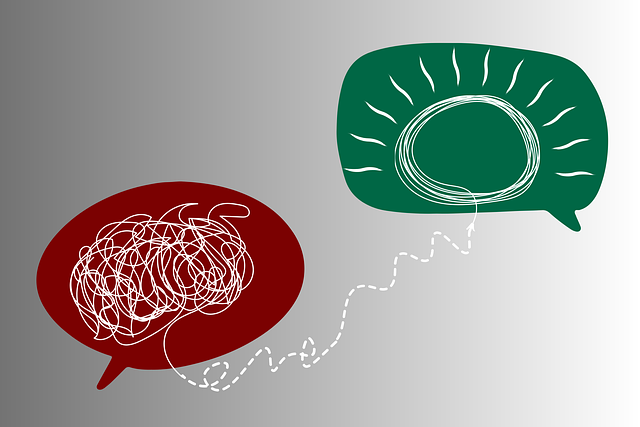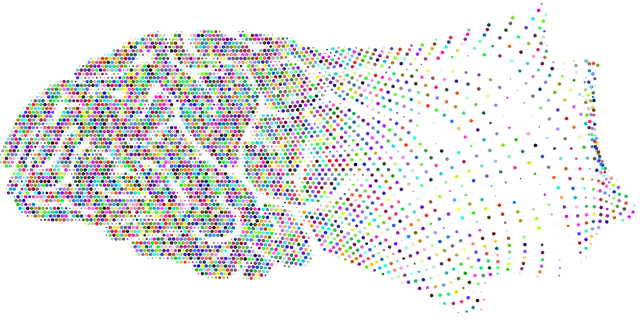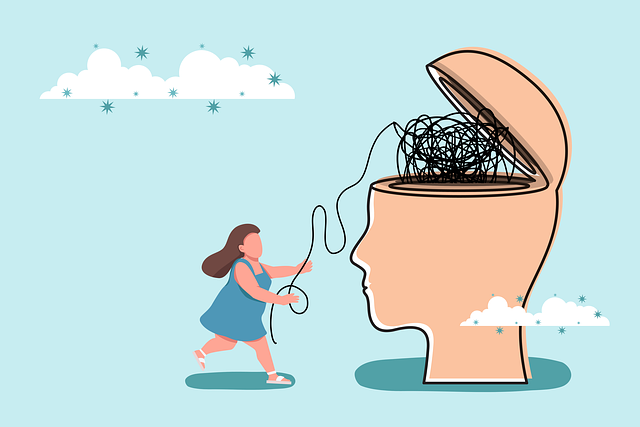Emotion regulation is a key component of mental health treatment, particularly at Littleton Neuro Disorders Therapy (LNT), where it empowers individuals with neurodisorders to manage their emotions effectively. Through education and evidence-based practices like cognitive reappraisal, mindfulness meditation, and communication strategies, LNT helps clients improve decision-making, reduce impulsive behaviors, and enhance social interactions. This holistic approach leads to better mental health outcomes, increased emotional intelligence, and improved quality of life, as evidenced by successful case studies.
Emotion regulation techniques are invaluable tools for managing neuro disorders, offering a path towards improved quality of life. This article explores the profound impact of teaching these skills, focusing on their ability to mitigate symptoms in neurodivergent individuals. We delve into the educational aspects, providing practical strategies for therapists, illustrated through real-world case studies from Littleton Neuro Disorders Therapy. Discover how these techniques empower individuals to navigate their emotions effectively.
- Understanding Emotion Regulation and its Impact on Neuro Disorders
- The Role of Education in Teaching Emotion Regulation Techniques
- Practical Strategies for Implementing These Techniques in Therapy
- Case Studies: Success Stories from Littleton Neuro Disorders Therapy
Understanding Emotion Regulation and its Impact on Neuro Disorders

Emotion regulation is a vital skill that plays a significant role in maintaining mental health and overall well-being. It involves recognizing, understanding, and managing one’s emotions effectively to promote positive outcomes. In the context of neuro disorders, such as those often treated at Littleton Neuro Disorders Therapy, emotion regulation techniques become even more crucial. These disorders can impact an individual’s ability to process and respond to emotions, leading to challenges in daily functioning and relationships.
Teaching individuals with neuro disorders effective emotion regulation strategies can significantly enhance their quality of life. Mental Health Education Programs Design that incorporate conflict resolution techniques and foster positive thinking have proven beneficial. By learning to identify and manage intense emotions, individuals can improve their decision-making abilities, reduce impulsive behaviors, and better navigate social interactions. This, in turn, contributes to improved mental health outcomes and a greater sense of control over one’s life.
The Role of Education in Teaching Emotion Regulation Techniques

Education plays a pivotal role in equipping individuals with effective emotion regulation techniques, especially those dealing with neurodisorders. Littleton Neuro Disorders Therapy emphasizes the importance of early intervention and personalized strategies to manage emotions, which can significantly impact an individual’s overall well-being. Through comprehensive educational programs, mental health professionals can teach valuable skills such as mindfulness, cognitive reframing, and emotional awareness, empowering individuals to navigate their feelings more effectively.
This approach not only benefits those directly affected but also fosters a supportive environment for learning and growth. Incorporating evidence-based practices into education, such as Communication Strategies and Mental Wellness Coaching Programs Development, further enhances the effectiveness of emotion regulation teaching. By integrating these techniques into therapeutic settings, professionals can help individuals develop resilience, improve their coping mechanisms, and ultimately enhance their ability to manage stress and emotions in various contexts.
Practical Strategies for Implementing These Techniques in Therapy

Implementing effective emotion regulation techniques in therapy is a crucial aspect of supporting individuals with neuro disorders in Littleton and enhancing their overall mental health awareness. One practical strategy involves teaching clients specific skills to recognize and label emotions, fostering emotional intelligence. This process begins with encouraging active listening and mindfulness practices, allowing individuals to become more attuned to their internal experiences. By promoting self-awareness, therapists can guide patients towards identifying triggers and understanding the physical sensations associated with different emotions.
Additionally, providing structured tools like cognitive reappraisal or mindfulness meditation exercises empowers clients to manage intense feelings constructively. Therapists can tailor these strategies to suit individual needs, ensuring they are accessible and practical for everyday application. Regular practice and reinforcement of these techniques during therapy sessions will enhance emotional regulation, ultimately improving clients’ ability to navigate challenging situations and promoting better mental health outcomes.
Case Studies: Success Stories from Littleton Neuro Disorders Therapy

At Littleton Neuro Disorders Therapy (LNT), we’ve witnessed remarkable transformations through our evidence-based emotion regulation techniques teaching. Our case studies highlight successful journeys of individuals who struggled with managing their emotions, showcasing the power of our therapeutic approach. Many clients have reported significant improvements in their ability to regulate moods, leading to better mental health and enhanced quality of life.
Through personalized therapy sessions, LNT combines cognitive-behavioral strategies, mindfulness techniques, and trauma support services tailored to each client’s unique needs. This holistic approach not only enables effective mood management but also acts as valuable burnout prevention strategies for healthcare providers. Our success stories are a testament to the transformative power of emotion regulation, offering hope and inspiration for those navigating emotional challenges.
Emotion regulation techniques are powerful tools that can significantly enhance the lives of individuals with neuro disorders. As highlighted by case studies in Littleton Neuro Disorders Therapy, teaching these skills through education and therapy not only improves emotional well-being but also fosters better cognitive function. By implementing practical strategies discussed in this article, therapists and educators can effectively support individuals in navigating and managing their emotions, leading to improved outcomes and enhanced quality of life.










